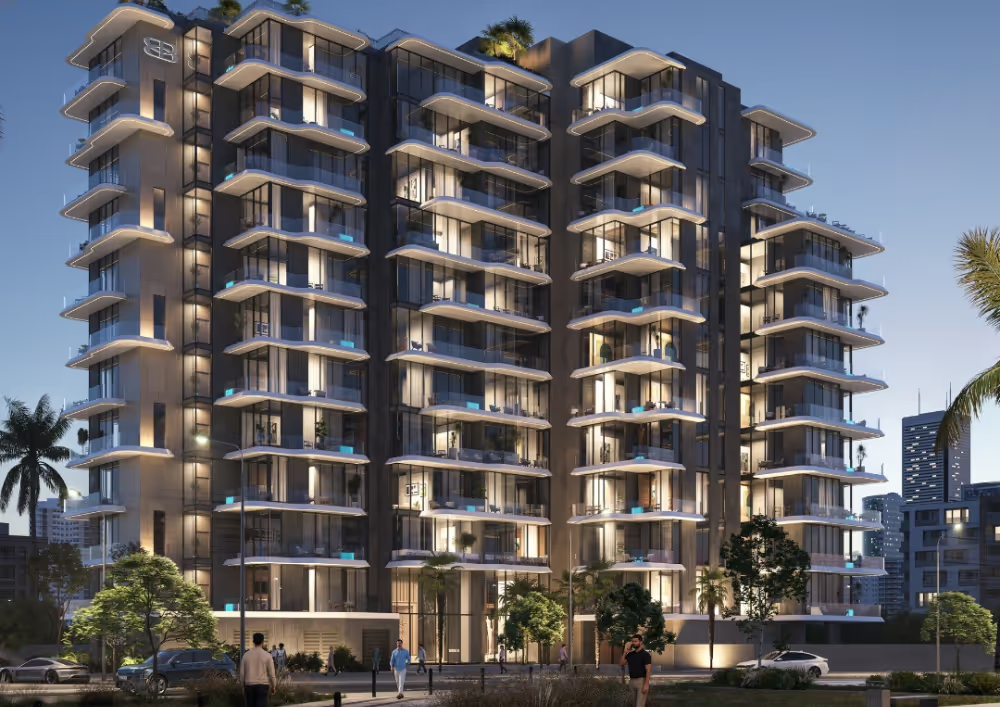UAE Mortgage Guide: Types, Rules & Smart Buyer Tips
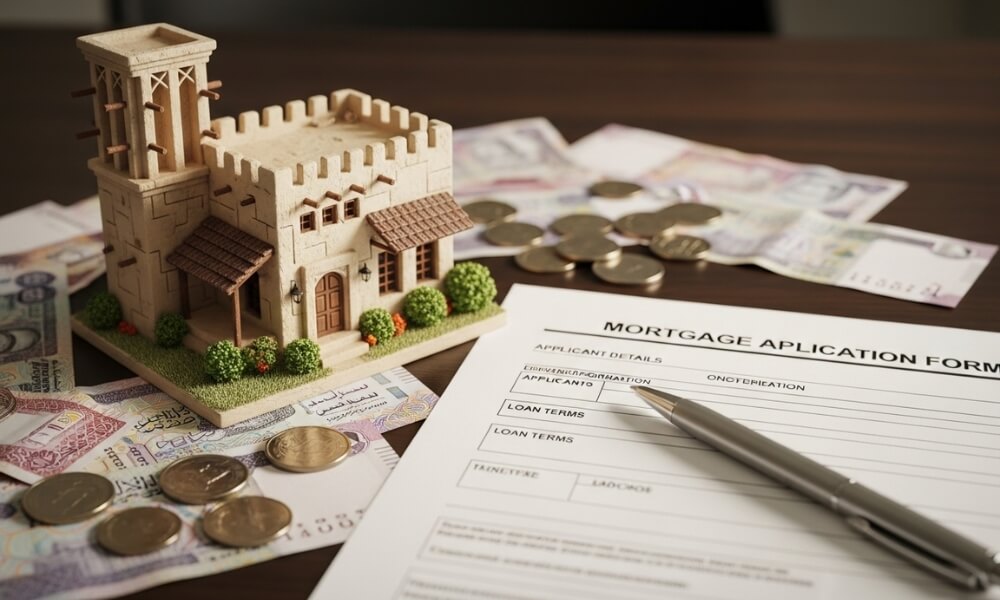
Buying a home in the UAE is an exciting step—and a mortgage can make it manageable. From fixed‑rate versus variable‑rate loans, Islamic home finance versus conventional plans for expats and locals, to bank comparisons and smart negotiation tips—this guide has it all.
What Is a Mortgage in the UAE?
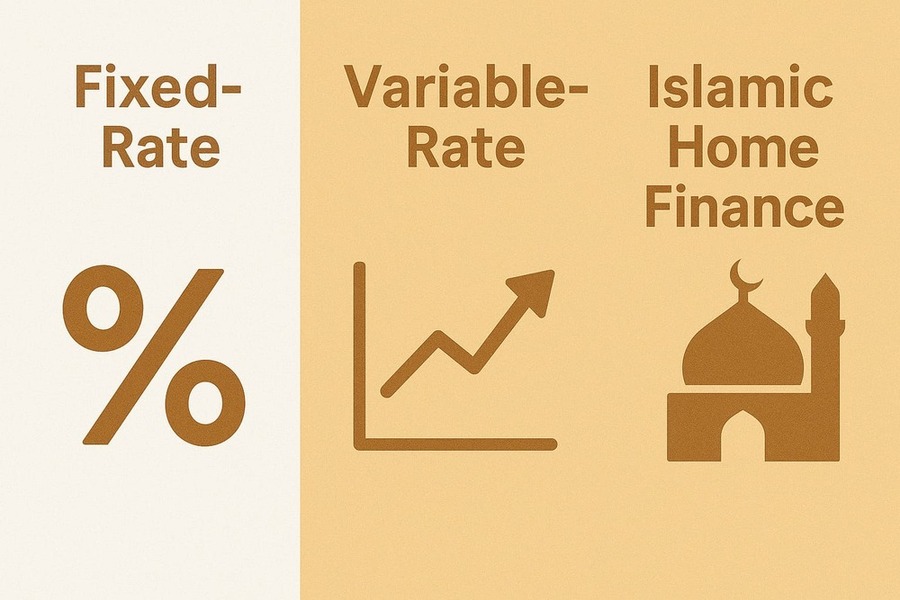
A UAE mortgage is a loan secured against your property, allowing you to buy now and pay over 15–25 years. Residents—both UAE nationals and expats—can access home finance from banks and Islamic lenders.
Key Takeaways:
- Mortgages include ready and off‑plan options.
- Compliance with UAE’s Real Estate Regulatory Agency (RERA) ensures professional standards.
- Loan structures include fixed‑rate, variable‑rate, and Islamic finance—we’ll unpack each below.
Types of Mortgages in the UAE
A) Fixed‑Rate Mortgage
- Interest is locked in (e.g., 3%, 3‑year fixed)
- Pros: Predictable repayments—great for budget planning
- Cons: Usually slightly higher than variable rates
B) Variable‑Rate Mortgage
- Rate tied to EIBOR + margin
- Pros: Benefit if EIBOR decreases
- Cons: Monthly payments may rise unexpectedly
C) Islamic Home Finance
- Murabaha: Bank buys, then sells to you with profit
- Ijara: Bank leases property; transfers ownership at end
- Pros: Sharia‑compliant, no interest
- Cons: Profit amounts may be higher than variable plans
Who Can Get a Mortgage in the UAE?

Nationals vs Expats
Buyer Type
LTV (Loan-to‑Value)
UAE Nationals
Up to 80–85%
Expats
Up to 75% for ready properties; 50–70% for off‑plan
Income & Eligibility
- Expats: Require AED 10–15k/month salary
- Nationals: AED 10k+ monthly
- Banks consider Debt Burden Ratio—keep your total loan payments under ~50% of your income.
Fees & Downpayments
- Down payment: 15–25% (nationals), 20–30% (expats) for ready units; off‑plan often requires just 10–15%
- Mandatory costs:
- DLD transfer fee: 4% of property price
- Mortgage registration: 0.25% of loan amount
- Property valuation fees, admin, brokerage
- Example: On AED 1M flat:
- AED 200k down
- AED 40k DLD fee
- AED 2.5k mortgage registry + additional charges
Exploring Bank Options
Top UAE mortgage providers:
- Emirates NBD – rapid approval, flexible rates
- First Abu Dhabi Bank – competitive fixed options
- ADCB/Mashreq – strong Islamic plans
- Dubai Islamic Bank – specialist Shariah finance
Compare based on:
- Interest structure (fixed/variable/profit rate)
- Processing speed
- Prepayment penalties
- Transparency in admin & valuation fees
Sample Mortgage Scenario
Property price: AED 1M
- Down payment: AED 200k
- Loan = AED 800k (80% LTV)
- 25‑year fixed repayment at 3.5% ≈ AED 3,900/month
Off‑Plan example:
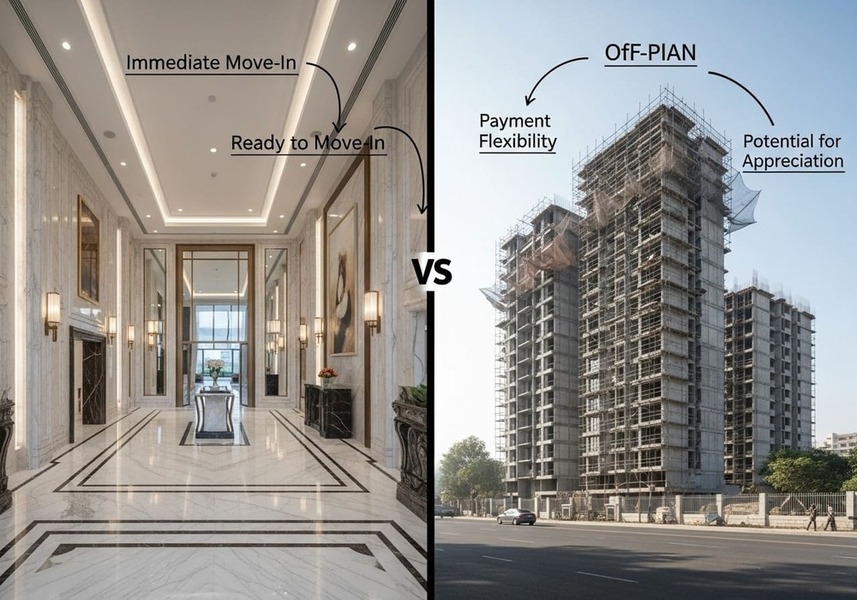
AED 1.2M purchase → 10% down, 60% LTV → 30-year loan → ~AED 4,200/month
Fixed vs Variable: What’s Best for You?
- Choose fixed if you prefer payment consistency and believe rates may rise.
- Variable can save money if EIBOR trends downward—but requires financial confidence.
- Islamic finance is ideal if you require Shariah compliance or want fixed profit rates over time.
Strategy: Consider a mix—start fixed, switch to variable later if market conditions improve.
How to Boost Your Approval Odds
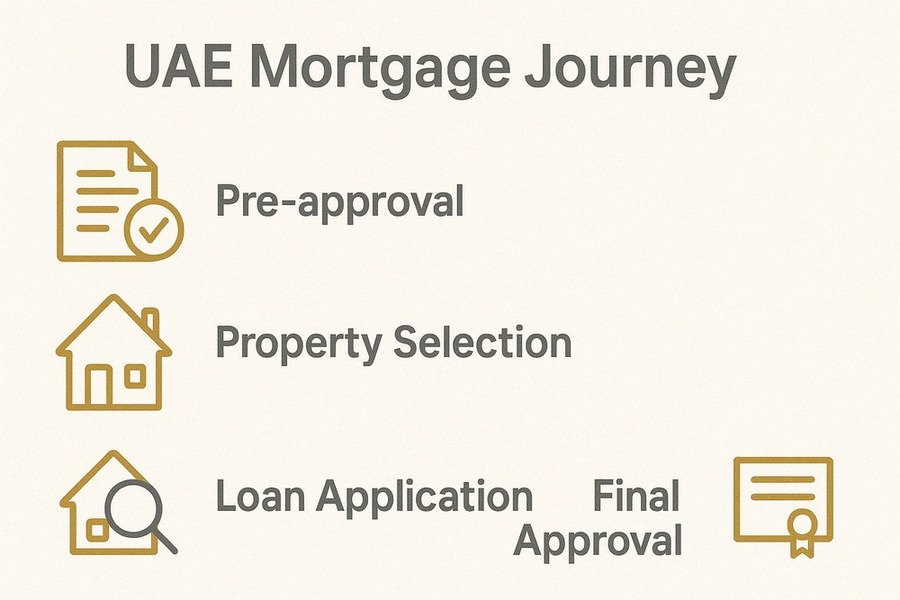
- Start with a mortgage pre‑approval—banks take about 2–4 weeks to assess
- Maintain stable bank balance and salary history
- Avoid excessive debt—credit cards, personal loans weigh heavily
- Consider salary transfer agreements with local bank
- Work with a RERA‑registered mortgage broker for better deals
Pearlshire’s Mortgage Assistance Program
At Pearlshire, we partner with top banks to offer:
- Exclusive mortgage rates and packages
- Pre‑approval support, documentation guidance
- Custom EMI simulations tailored to your income & goals
- Dedicated advisor walking you through each step
Our buyers get transparent service—no hidden fees, no late surprises—and a fast, investor‑focused process.
FAQs
1. Can foreigners get a mortgage in Dubai?
Yes, expats can apply for mortgages in Dubai through local banks. Most lenders offer up to 75% loan-to-value (LTV) for ready properties and around 50–60% for off-plan properties, depending on income and residency status.
2. What is the minimum salary to get a mortgage in the UAE?
The typical minimum salary required for expats is AED 15,000 per month, though some banks accept AED 10,000 with stronger financial profiles or salary transfer agreements.
3. Is Islamic finance different from a regular mortgage?
Yes, Islamic home finance follows Shariah law and does not involve interest. Instead, banks use structures like Murabaha or Ijara, where the bank either leases the home to you or sells it at a profit.
4. How long does it take to get mortgage approval in the UAE?
Mortgage pre-approvals typically take 3 to 7 working days after you submit all required documentation. Full approval and disbursement may take up to 3–4 weeks.
5. What are the main mortgage costs and fees in Dubai?
In addition to the down payment (15–25%), buyers should plan for a 4% DLD registration fee, a 0.25% mortgage registration fee, property valuation fees (~AED 2,500–3,000), and a 2% broker commission (if applicable).
6. Can I get a mortgage for off-plan properties in Dubai?
Yes, but they often require a larger down payment (30–50%) and fewer banks offer off-plan financing. Developers usually provide payment plans for off-plan buyers as an alternative.
7. What happens if I miss a mortgage payment in the UAE?
Missing payments can lead to late fees and negatively affect your credit score. In severe cases, banks may initiate legal action or foreclosure. Always notify your bank early to renegotiate terms.
8. Can I switch my mortgage to another bank later?
Yes. This process is called mortgage buyout or refinancing. It’s often used to reduce interest rates or consolidate debt, especially once your loan-to-value ratio improves.
9. Which banks offer the best mortgage rates in Dubai?
Top banks include Emirates NBD, First Abu Dhabi Bank (FAB), Dubai Islamic Bank, Mashreq, and ADCB. Rates vary based on fixed vs variable structure and client profiles.
10. Is it better to rent or buy property in Dubai in 2025?
If you plan to stay in Dubai for 3+ years or want long-term ROI, buying is often more cost-effective—especially with rising rents and flexible payment plans for off-plan units.
Understanding the differences between fixed, variable, and Islamic mortgages empowers you to make better financial decisions. Partner with Pearlshire’s mortgage team to find the right plan, with transparent costs and fair terms. Whether you're an expat or Emirati, you can confidently finance your dream home in 2025 by choosing the right winners in the mortgage market.

